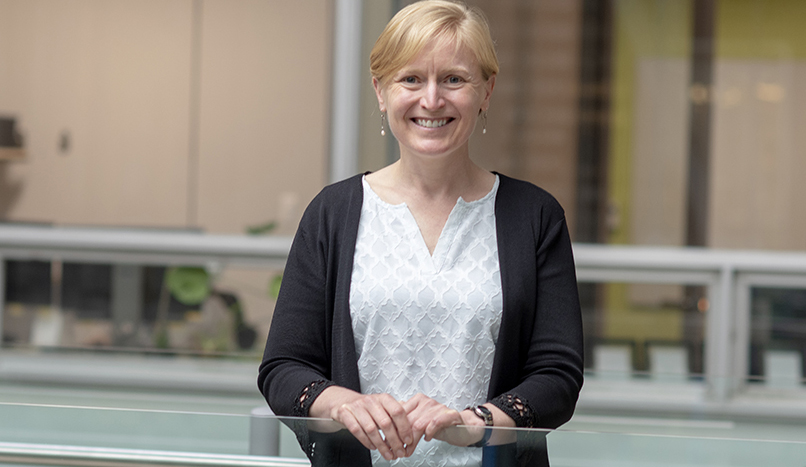Vicki Hart believes in the power of data.
In the field of public health and epidemiology, she believes that quality data can provide an accurate picture of the world and help shape important policy measures.
“There are so many questions and so much misinformation out there about health and health policy, and the only way we’re going to answer those questions is with accurate data,” says Hart, who joined the UVM Larner College of Medicine as a full-time assistant professor and is teaching in the online UVM Master of Public Health Program.
“What I love about epidemiology is that it’s an opportunity to do a really good job gathering data and using it to inform policy and decision-making in the health care arena,” she says. “It can be about asking things like, is this a good drug to give people? Or is this behavior associated with the risk of that disease? Or is the burden of disease higher in certain populations? The only way we can answer all those questions is through good data. And that’s what I love about epidemiology—it’s all about the methods and understanding the world around us as it is, not as we want it to be.”
From Engineering to Statistics to Epidemiology
Hart was born in England and moved with her parents to New Jersey when she was 12 years old. She studied mechanical engineering at Cornell University and began her career in the aerospace industry in 1999.
She worked for the former Goodrich Corporation (now Collins Aerospace) in Vergennes, starting as a manufacturing engineer, then operations manager and eventually became the director of manufacturing. But after eight years, she longed for a change.
“What it boiled down to was that making aircraft systems wasn’t my real interest. It got hard to feel a sense of urgency about something I wasn’t passionate about,” Hart says. “I had no idea what I wanted to do, but I knew that I wanted to apply my skills elsewhere.”
During Hart’s undergraduate years, she never imagined she would specialize in biostatistics and epidemiology. In fact, she took a statistics course in college and found it entirely unappealing. That all changed while working for Goodrich when Hart’s boss sent her to a Lean Six Sigma Black Belt training to improve the company’s production quality. Six Sigma is a set of techniques and tools for continuous quality improvement that seeks to reduce variation in order to better control a process.
“When I did the Lean Six Sigma Black Belt training, I wondered, ‘Why didn’t anyone tell me that stats were so powerful?’ Because of that training, I fell in love with statistics and could see how to apply it,” she says.
She then earned her master’s degree in biostatistics from UVM in 2010 and her doctorate in epidemiology from the University of Massachusetts in 2014. Following graduate school, she launched Hart Dataworks to help health care organizations, non-profits, and small businesses with survey design and data analysis.
Hart, an avid runner and outdoor enthusiast who hiked the entire Appalachian Trail in 2017, is teaching an epidemiology course at UVM this summer and will continue teaching epidemiology and biostatistics in the fall.
“One of the reasons I’m so excited about teaching full time is to have the opportunity to explore different types of teaching and to find ways to make online teaching better,” she says, adding that UVM Associate Dean of Public Health Jan Carney, MD, MPH, encourages faculty to experiment with curriculum delivery. “Even though online teaching is growing, so many of the possibilities are still unexplored. But there’s so much excitement around online medical education.”




